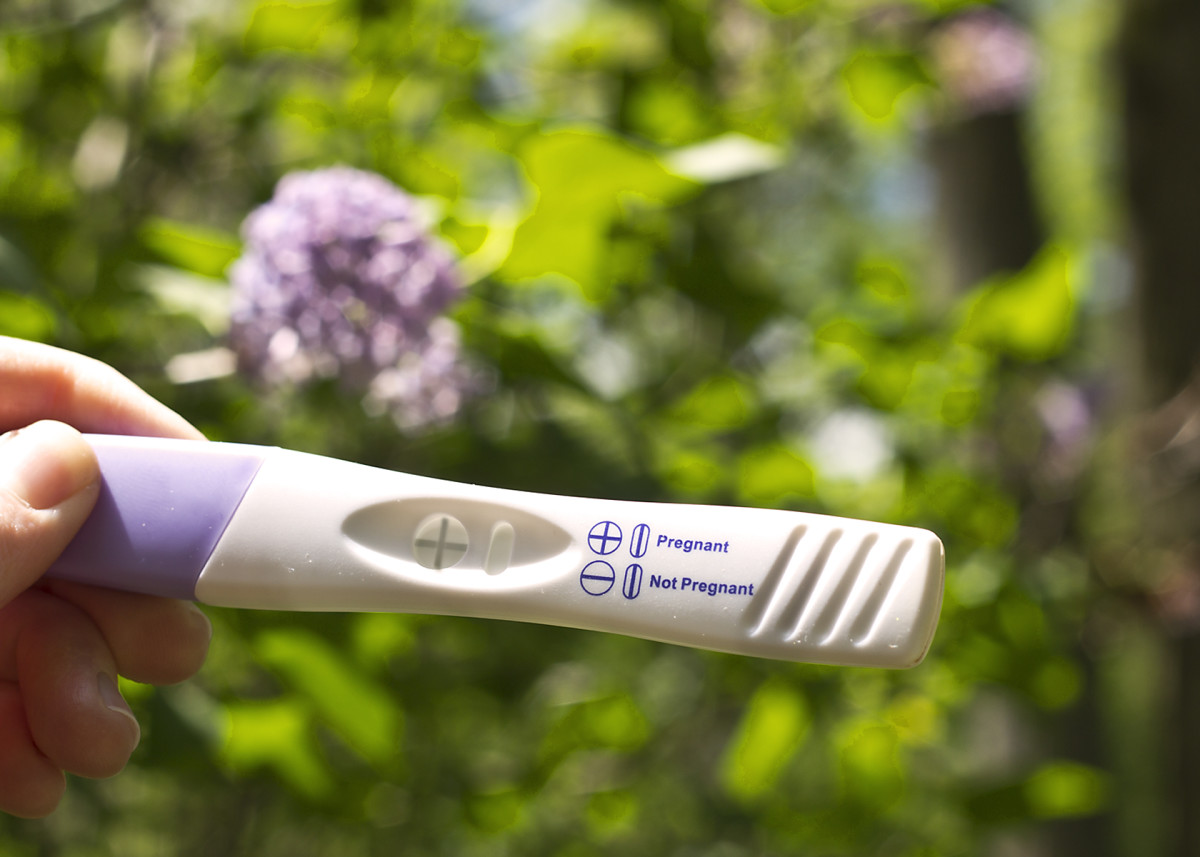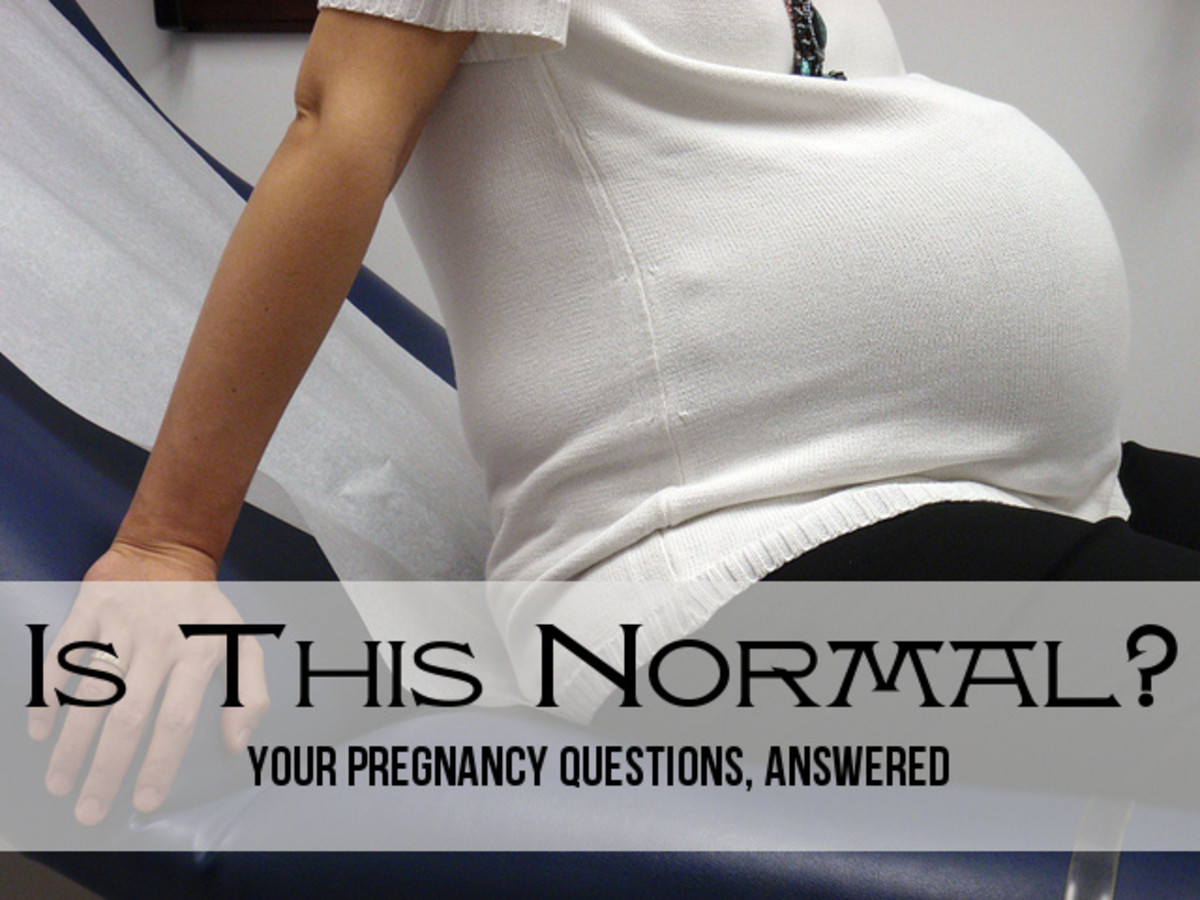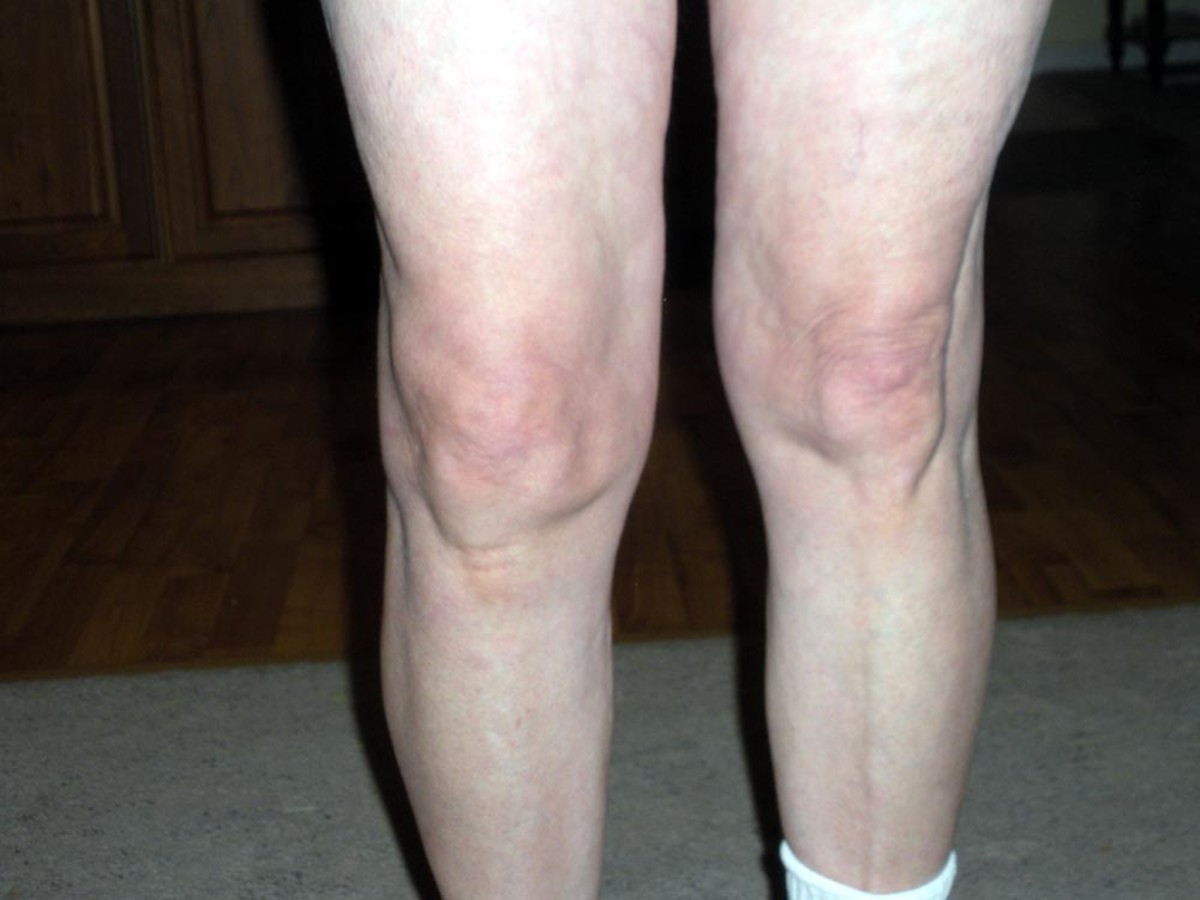Planning a Pregnancy with Fibromyalgia
Considering that between 90%-60% of FMS sufferers are women, and that many of them are of childbearing age you would think that the internet would be rife with helpful and well researched information about the effects of pregnancy on FMS and FMS on pregnancy. Unfortunately the opposite seems to be the case.
Very little research has been done on the subject. Most of the information available, both on and off the web is anecdotal, but not without value. The information in the following article has been gleaned both from the few studies that have been done and from many many hours of browsing message boards and websites for bits of info here and there. It’s not conclusive or complete but, unfortunately, it’s the best we’ve got.

Pregnancy is safe for FMS sufferers
When I was diagnosed with FMS after questions like, “Can it be cured?” and “Will it kill me?” I very quickly came to the question that so many other women have asked their doctors, “Does this mean I can’t have children?” Imagine my relief when multiple doctors answered with something along the lines of, “Fibromyalgia is no reason not to have children.”
Pregnancy during FMS is safe certainly but as we all know pregnancy will throw your body through every loop. There is no part of your body that goes unaffected. From foggy brains to sore, swollen feet. From head to toe. And FMS is most likely going to make it all harder.
The only effect that your FMS will have on your growing baby is that once the baby is grown they will have a slightly higher risk of developing FMS following a physical or emotional trauma in their life. FMS seems to have a genetic link. All studies to date have been suggestive yet inconclusive.
FMS will also pose no difficulty when it comes to getting pregnant, unless of course, you (along with many other women with FMS) find physical intimacy sometimes hard on your symptoms and on your body. However, that is for another hub.
The Research
In all there have been about three or four studies done on the effects of Fibromyalgia on pregnant women over the course of a couple decades. In every case the studies were small (fewer than 30 subjects) and in most cases they lacked controls. To top off all this wonderful uncertainty is the fact that some of them were contradictory.
It has long been thought by a number of doctors who treat FMS patients that pregnancy might actually alleviate some symptoms of FMS. The theory is that while pregnant your body creates plenty of growth hormones (since it’s growing people) and that that growth hormone may alleviate some symptoms of FMS. Since people with FMS are incapable of naturally achieving restorative sleep to combat things like wear, tear and fatigue in our bodies, it was thought that perhaps the growth hormone sort of took over and restored the mommy-to-be.
However belief in this theory seems to be based largely on it’s viability on paper as opposed to any actual observation or conversation with pregnant FMS sufferers. Anecdotally the majority of women seem to experience symptoms that are worse or the same up to month seven. Almost across the board women report that their symptoms worsen considerably in the last three months of pregnancy.
There is a lot of talk about a study that had results suggesting that FMS sufferers do feel better during pregnancy however in all my research I have been unable to find anything other than hearsay. If you have conclusive information on the subject I would love to hear about it. I’m always looking for new info!
Norway
In 1997 a study was done on the subject of FMS and pregnancy in Norway. Norwegian researchers found that compared to controls women with FMS experienced a great deal more pain and had other symptoms of both FMS and pregnancy exacerbated. Consistently the third trimester was reported to be the worst and the heightened FMS symptoms seemed to continue, on average, for about three months after the birth. Despite the many people who quote this information (myself now included) however, I could not find the actual report of the study anywhere. If you have the link to the study results please leave it in the comments.
Philadelphia
In 2006 a pilot study was done at Temple University in Philadelphia. Researchers sent a questionnaire to women with and without FMS between the ages of 29-31 who were in there third trimester of pregnancy. As in Norway, women with FMS reported exacerbated FMS symptoms including soreness, stiffness and fatigue. Once again the third trimester was reported to be the worst. To see the results of the study yourself click here.
On a bright note, across the board babies who are born to women with FMS are just as likely to be born at full term, of average birth weight and to be completely healthy.
Medication during pregnancy
Many people with FMS rely on medication to get through daily life, I know I do. Unfortunately there is no medication that is used to treat FMS that is considered completely safe for pregnancy. Most of the medications we rely on have not been studied well enough for conclusive results to be available. That doesn’t necessarily mean that going drug-free while you’re trying to get pregnant, and once you are, is right for you.
Some women find upon trying to go drug free that their symptoms are completely unmanageable without their medication. Anecdotally it can be seen that many women experience completely healthy pregnancies and give birth to completely healthy babies while remaining on, or perhaps simply reducing their medication.
Of course making the decision to stay on a medication that could be potentially harmful to your growing baby is a tough one and one that is not without guilt. However, it’s important that you do what you have to do in order to take care of yourself and your baby during your pregnancy. If going off your meds means that you’ll be in bed with sky-high pain levels all nine months it’s probably not the right choice for you.
I could make a huge list of all the medications that are used to treat FMS and how likely they are to be harmful during pregnancy however I am not a doctor. The decision to stay on or go off your medication is not one that should be taken lightly and is one that you should discuss with your physician, or with many physicians.
Many women also use herbs and supplements to treat their FMS. It’s important to note than many of those herbs and supplements are not safe to continue using during pregnancy. Among them the very common St. John’s Wort that is used for sleep. Again, this is a decision you should be making with your doctor. There is so much conflicting information abound on the internet that it’s hard to sort through it all without a medical practitioner at your side.
Treatments that are safe during pregnancy
If you do decide to go off of medication when you start trying to get pregnant there are still many other treatments that carry little to no risk. How well these treatments will help you to manage your pain however is a question that only you can answer and then only by trial and error.
If you choose to give these treatments a try, or to simply continue alternative treatments that you have been using all along make sure that your practitioner knows that you’re pregnant (once you are).
Treatments that are safe while trying to get pregnant and being pregnant:
Massage therapy
Acupuncture
Exercise
Physical therapy
Getting your FMS under control
While discussing family planning with my doctor she seemed to think it would be a great idea for me to ‘get my FMS under control’ before my husband and I started trying. But as my fellow fibro-mites well know FMS is not a disease that’s easily controlled. Waiting for a point when your FMS levels out and becomes somehow easier to maintain seems like a decision to wait forever. The experiences of pregnancy and parenting will throw our FM-ed bodies through so many hoops the results of which we can’t possibly predict. The best we can do is find a state where we are ready to deal with those things when we are no longer the only one’s depending on ourselves every minute of every day.
With this in mind I advocate taking 3-12 months before you start trying to get pregnant to discuss your medication use with your doctor, explore alternative treatments and therapies and perhaps try out a few different medications that may be safer during pregnancy. When you have FMS or any chronic disease planning a pregnancy is about so much more than taking your basal body temperature every day.








